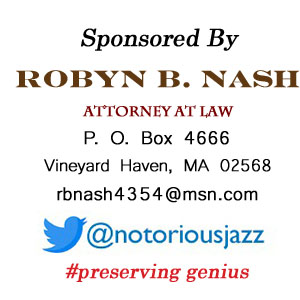Daily Dose Of Jazz…
Charles Davis was born on September 29, 1946 in Sydney, Australia and started playing flute during his youth. After a short period of studying classical guitar in Sydney, he started playing jazz, rock and folk in groups after moving to Brighton. Hearing a lot of music in a rock music context, I was so fascinated.
A move to Germany in the Seventies saw him playing the flute and later for a short period of time, the saxophone in jazz rock groups. By 1980 he started playing guitar and piano. Being inspired by the various saxophone groups that appeared in the 70s, by the 90s Davis formed one of the first jazz groups composed solely of flutes. This ground breaking group required that the various members compose for this unique formation taking into account the different types of flutes. Later in the decade, after meeting bansuri player Joachim Hübner, his interest turned to the classical north indian music and became a student of the Chanchala and Duo Bubachala.
Charles has attended workshops and masterclasses conducted by James Newton, Robert Dick and Dieter Bihlmeier, Hari Prasad Chaurasia, Jeremy Steig, Hossein Omoumi and Herbie Mann. Alto, bass and double bass flautist Charles Davis currently resides in Germany and continues to compose, record and perform.
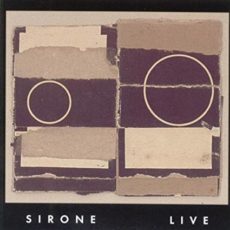
Daily Dose Of Jazz…
Sirone was born Norris Jones on September 28, 1940 in Atlanta, Georgia. In the late Fifties and early 1960s he worked with The Group alongside George Adams while also recording with R&B musicians such as Sam Cooke and Smokey Robinson.
Moving to New York City in the middle of the 1960s, he co-founded the Untraditional Jazz Improvisational Team with Dave Burrell. He also worked with Marion Brown, Gato Barbieri, Pharoah Sanders, Noah Howard, Sonny Sharrock, Sunny Murray, Albert Ayler, Archie Shepp, Billy Bang, and Sun Ra.
He co-founded the Revolutionary Ensemble with Leroy Jenkins and Frank Clayton in 1971; Jerome Cooper later replaced Clayton in the ensemble, which was active for much of the decade. In the 1970s and early 1980s Sirone recorded with Clifford Thornton, Roswell Rudd, Dewey Redman, Cecil Taylor, Zusaan Kali Fasteau, Charles Gayle and Walt Dickerson.
In the 1980s, he was member of Phalanx, a group with guitarist James “Blood” Ulmer, drummer Rashied Ali, and tenor saxophonist George Adams. From 1989 he lived in Berlin, Germany where he was active with his group Concord with Ben Abarbanel-Wolff and Ulli Bartel. Bassist and composer Sirone, who was involved in theater and film, passed away on October 21, 2009.
More Posts: bass
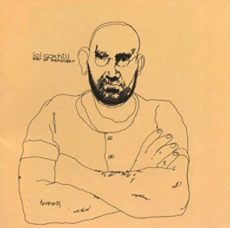
Daily Dose Of Jazz…
Lol Coxhill was born George Lowen Coxhill on September 19, 1932 in Portsmouth, Hampshire, UK. Growing up in Aylesbury, Buckinghamshire he bought his first saxophone in 1947 at 15. After national service he became a busy semi-professional musician, touring US airbases with Denzil Bailey’s Afro-Cubists and the Graham Fleming Combo.
The 1960s saw Lol playing with Rufus Thomas, Mose Allison, Otis Spann, and Champion Jack Dupree. He also developed his practice of playing unaccompanied solo saxophone, often busking in informal performance situations. He performed mostly as a sideman or as an equal collaborator, rather than a conventional leader with a trio or quartet. Instead he had many intermittent but long-lasting collaborations with like-minded musicians.
In the late 1960s and early 1970s, he was a member of the Canterbury scene bands Carol Grimes and Delivery and then Kevin Ayers and the Whole World. He became known for his solo playing and for duets with pianist Steve Miller and guitarist G. F. Fitzgerald. Coxhill collaborated with Mike Oldfield, Morgan Fisher, Chris McGregor’s Brotherhood of Breath and its musical descendant The Dedication Orchestra, Django Bates, the Damned, Hugh Metcalfe, Derek Bailey and performance art group Welfare State among numerous others.
He often worked in small collaborative groups with semi-humorous names Typically these bands performed a mix of free improvisation interspersed with ballroom dance tunes and popular songs. There was a humor in his music though the free playing was not intended as a joke. He performed at the Bracknell Jazz Festival, and following a performance at Bracknell he recorded the melodramatic monologue Murder in the Air.
Soprano saxophonist Lol Coxhill, who also played the sopranino saxophone and was a free improviser and raconteur, passed away on July 10, 2012.
More Posts: saxophone
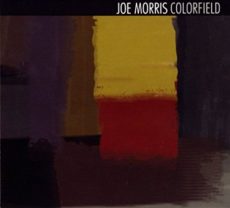
Daily Dose Of Jazz…
Joseph Francis Michael Morris was born September 13, 1955 in New Haven, Connecticut. Starting on guitar he was primarily self-taught with only a few lessons, and played his first professional gig in 1969 . Jimi Hendrix and other guitarists of that period inspired him to learn to play the blues and John Coltrane’s Om inspired him to learn about jazz. From the age of 17 he worked to establish his guitar voice in the free jazz context, inspired by Cecil Taylor, Eric Dolphy, Leroy Jenkins and Thelonious Monk. After high school he performed in rock bands, rehearsed in jazz bands, and played improvised music until 1975, when he moved to Boston, Massachusetts.
By 1983 he formed his own record company, Riti, and recorded his first album, Wraparound. An early mentor and playing partner was pianist Lowell Davidson. Between 1989 and 1993 he performed and recorded with his electric trio Sweatshop and electric quartet Racket Club. 1994 saw Joe become the first guitarist to lead his own session in the twenty-year history of Black Saint/Soul Note with the trio recording Symbolic Gesture.
Morris has continued to record extensively for Leo, Knitting Factory, AUM Fidelity, Hathut, Clean Feed, ESP and RogueArt record labels. He has led his own groups and has recorded and performed with Matthew Shipp, William Parker, John Zorn, Joe Maneri, Rob Brown, Ivo Perelman, Ken Vandermark and DKV Trio, Jim Hobbs, Steve Lantner, Daniel Levin, Petr Cancura and David S. Ware among others.
He has lectured and conducted workshops throughout the United States and Europe, is a former member of the faculty of Tufts University Extension College and is currently on the faculty at New England Conservatory in the jazz and improvisation department. Guitarist, bassist, improviser and composer Joe Morris continues to perform and record.
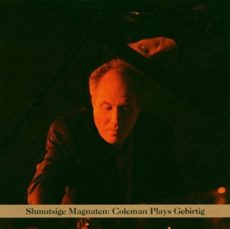
Daily Dose Of Jazz…
Anthony Coleman was born on August 30, 1955 in New York City and didn’t begin to study piano until the age of thirteen with Jaki Byard. He attended the New England Conservatory of Music and studied with George Russell, Donald Martino and Malcolm Peyton.
Coleman has collaborated with guitarist Elliott Sharp, trumpeter Dave Douglas, accordion player Guy Klucevsek, composer David Shea, former Captain Beefheart band member Gary Lucas, classical and klezmer clarinetist David Krakauer, guitarist Marc Ribot, bassist Greg Cohen, drummer Joey Baron and saxophonist Roy Nathanson.
He has toured with his groups Sephardic Tinge and Selfhaters throughout Europe, in the 1990s and the early 2000s. His Disco by Night was his first major solo record released by Japan’s Avant Records in 1992. He released duo albums, The Coming Great Millenium, Lobster & Friend, and I Could’ve Been a Drum with Roy Nathanson, that typify his free playing style as well as his multi-instrumental capability. Coleman and Nathanson have performed all over the U.S. and Europe. His album The End of Summer features his NEC Ensemble Survivors Breakfast.
Avant-garde pianist Anthony Coleman has released 15 albums as a leader, 33 as a sideman, appeared in four documentaries, has written four compositions, has taught theory and composition at Bennington College, is on the faculty of the New England Conservatory of Music and Mannes College New School for Music, writes articles for All About Jazz and Bomb magazine and continues to perform, compose and record.
More Posts: piano


